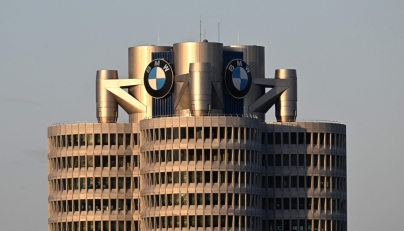Health
Dutch Consumer Groups Initiate Class-Action Against BMW Over Emissions

The Dutch Consumer Association has announced a class-action lawsuit against BMW, alleging that the luxury automaker manipulated emissions data for approximately 100,000 vehicles sold in the Netherlands. The lawsuit was revealed on Monday and is being pursued in collaboration with another group, Car Claim.
According to the Consumentenbond, studies indicate that software was installed in BMW vehicles to lower nitrogen emissions during official testing. In contrast, the organization asserts that these vehicles produce significantly higher emissions under typical driving conditions.
In a statement, Sandra Molenaar, head of Consumentenbond, expressed strong criticism, stating, “It’s shameless how BMW misled both the inspection bodies and consumers.” She emphasized the need for the company to accept responsibility, saying, “We want BMW to compensate the consumers they misled.”
Details of the Lawsuit
The lawsuit targets all BMW and MINI diesel cars sold in the Dutch market between January 1, 2009, and September 1, 2019. This legal action forms part of a broader pattern of litigation regarding automotive emissions that has plagued the industry in recent years.
In response to inquiries from AFP, a BMW representative indicated that the company was made aware of the lawsuit through media reports, but stated that “no such claim has yet been served.” The spokesperson, Andrew Mason, noted that the company is not yet familiar with the specific allegations being made by Car Claim.
Car Claim has urged BMW to recall affected vehicles and retrofit them, as well as to provide compensation to current and former owners of the cars in question. Guido van Woerkom, chairman of Car Claim, remarked that despite initiating legal proceedings, they continue to encourage BMW to engage in discussions to find a fair resolution.
A Broader Context of Emission Scandals
This potential lawsuit is another chapter in the ongoing emissions scandal known as “dieselgate,” which first came to light in September 2015 when Volkswagen admitted to equipping millions of vehicles with software designed to deceive emissions testing. This revelation sent shockwaves through the global automotive industry, leading to legal actions against several manufacturers in various countries, including France, South Korea, and the United States.
In February 2019, German prosecutors fined BMW 8.5 million euros (approximately $9.8 million) for producing diesel vehicles that emitted higher levels of pollutants than allowed; however, the prosecutors stated that the infraction was due to error rather than intentional fraud.
The current class-action lawsuit underscores the persistent concerns regarding automotive emissions and the accountability of manufacturers in ensuring compliance with environmental standards. As this case unfolds, it remains to be seen how BMW will respond to the allegations and what implications this will have for consumers and the industry as a whole.
-

 World3 months ago
World3 months agoTest Your Knowledge: Take the Herald’s Afternoon Quiz Today
-

 Sports4 months ago
Sports4 months agoPM Faces Backlash from Fans During Netball Trophy Ceremony
-

 Lifestyle4 months ago
Lifestyle4 months agoDunedin Designers Win Top Award at Hokonui Fashion Event
-

 Sports3 months ago
Sports3 months agoLiam Lawson Launches New Era for Racing Bulls with Strong Start
-

 Lifestyle3 months ago
Lifestyle3 months agoDisney Fan Reveals Dress Code Tips for Park Visitors
-

 World4 months ago
World4 months agoCoalition Forms to Preserve Māori Wards in Hawke’s Bay
-

 Health4 months ago
Health4 months agoWalking Faster Offers Major Health Benefits for Older Adults
-

 Politics3 months ago
Politics3 months agoScots Rally with Humor and Music to Protest Trump’s Visit
-

 Entertainment4 months ago
Entertainment4 months agoExperience the Excitement of ‘Chief of War’ in Oʻahu
-

 Top Stories4 months ago
Top Stories4 months agoUK and India Finalize Trade Deal to Boost Economic Ties
-

 World4 months ago
World4 months agoHuntly Begins Water Pipe Flushing to Resolve Brown Water Issue
-

 Science4 months ago
Science4 months agoNew Interactive Map Reveals Wairarapa Valley’s Geological Secrets









